Do you have a question about the Cadillac Escalade 2020 and is the answer not in the manual?
Explains hazard symbols and their meanings for safety.
Describes symbols used in the manual and on the vehicle for information.
Details on vehicle keys, remote entry, door lock operation, and security features.
Information on liftgate operation, power assist steps, and vehicle security systems.
Covers vehicle alarm systems, steering column locks, and immobilizer operation for theft deterrence.
Information on power windows, sun visors, and their operation.
Instructions on adjusting and installing front and rear seat head restraints for neck injury prevention.
Covers power seat adjustments, lumbar support, memory seats, massage, and heated/cooled features.
Explains proper seat belt usage, lap-shoulder belts, and safety system checks.
Information on airbag types, deployment, passenger sensing, and servicing airbag-equipped vehicles.
Guides on selecting and installing child restraints, including LATCH systems and safety for children.
Details on various storage locations like instrument panel, glove box, cupholders, and armrest storage.
Covers cargo tie-downs, convenience nets, and safety kits for vehicle organization.
Information on the usage and installation of roof rack systems for carrying extra items.
Explains steering wheel adjustment, controls, horn, wipers, compass, clock, and power outlets.
Details on various warning lights, gauges, and indicators on the instrument cluster.
Information on the Driver Information Center (DIC) and Head-Up Display (HUD).
Describes how to customize vehicle features and settings through the infotainment system.
Covers exterior lamp controls, automatic headlamps, daytime running lamps, and hazard flashers.
Details on instrument panel illumination, dome lamps, and reading lamps.
Explains entry lighting, exit lighting, and battery management features related to lighting.
Provides an overview of the infotainment system manual and its contents.
Explains the function and requirements of the Active Noise Cancellation system.
Covers dual automatic climate control and rear climate control systems.
Describes the location and adjustment of adjustable air vents.
Details on passenger compartment air filter replacement and general service for the climate system.
Tips for better fuel economy, defensive driving, and vehicle control.
Covers new vehicle break-in, pedal adjustments, ignition positions, starting the engine, and retained accessory power.
Information on engine exhaust systems, carbon monoxide risks, and running the vehicle while parked.
Explains automatic transmission operation, manual mode, and tow/haul mode.
Covers ABS, parking brake, brake assist, and hill start assist features.
Explains traction control, electronic stability control, driver mode control, and magnetic ride control.
Information on setting, using, and ending cruise control and adaptive cruise control.
Covers forward collision alert, lane departure warning, lane keep assist, side blind zone alert, and parking assist systems.
Information on recommended fuel, prohibited fuels, fuel additives, and filling the tank.
Guides on towing capacity, weight ratings, hitches, trailer wiring, and driving with a trailer.
Information about visiting the dealer for service and genuine parts.
Guidance on performing your own service work, including hood operation and warnings.
Steps for ensuring engine performance, checking oil levels, and oil changes.
Information on tire types, pressure, inspection, rotation, and replacement.
Step-by-step instructions for safely jump starting a vehicle with jumper cables.
Guidelines for safely towing a disabled vehicle, including cautions and procedures.
Instructions for washing, drying, and cleaning exterior and interior surfaces.
Importance of vehicle maintenance for value, safety, and cost savings.
Schedule of required services for normal and severe driving conditions.
List of recommended fluids, lubricants, and replacement parts for the vehicle.
Part numbers for common replacement items like filters, spark plugs, and wiper blades.
A log to record service dates, odometer readings, and services performed.
Information on Vehicle Identification Number (VIN) and engine identification.
Approximate fluid capacities and technical specifications for the vehicle.
Details on engine type, horsepower, torque, and spark plug gap.
Lists equipment approval and compliance rules for radar and other systems.
Explains vehicle computer data collection, usage, and privacy protection measures.
GM's commitment to protecting vehicle electronics and customer data from unauthorized access.
Information on the purpose and recording capabilities of the Event Data Recorder (EDR).
| Brand | Cadillac |
|---|---|
| Model | Escalade 2020 |
| Category | Automobile |
| Language | English |

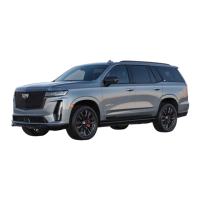
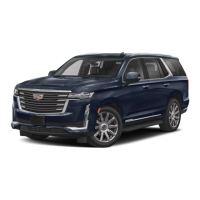

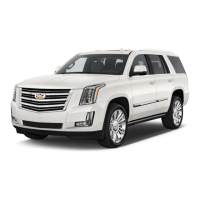
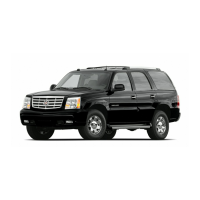
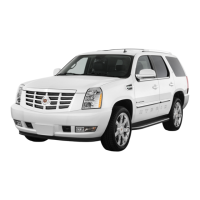
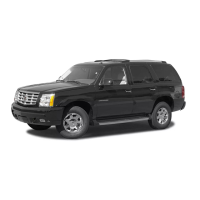
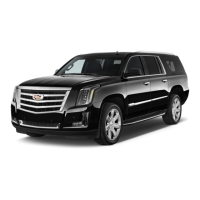
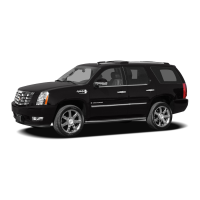
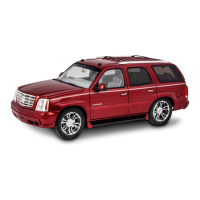

